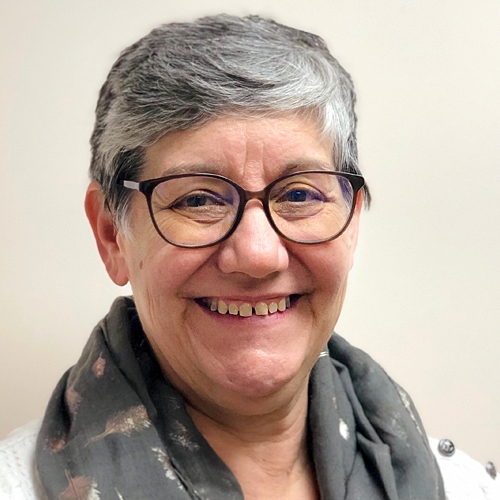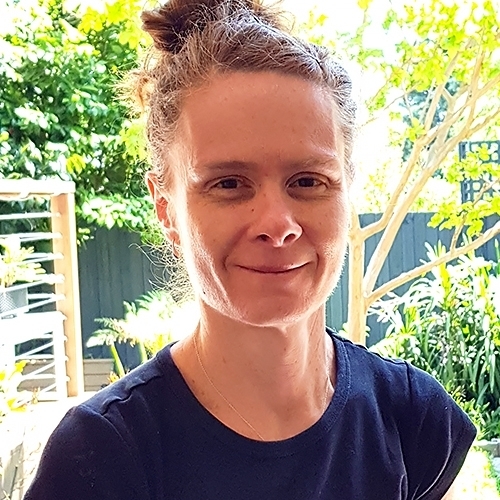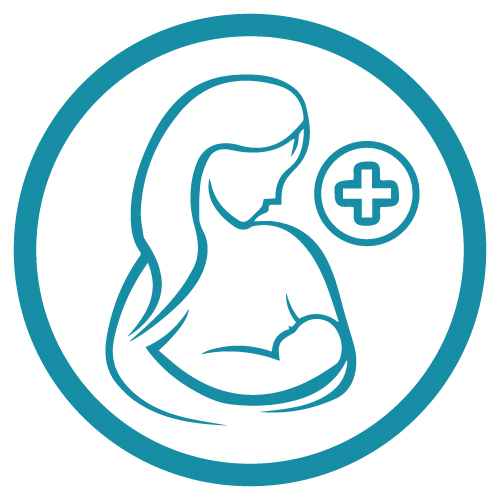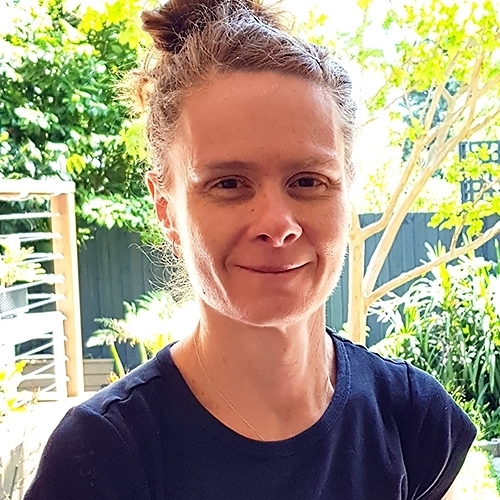 IBCLC Detailed Content Outline: Pathology Focused CERPs - Section III
IBCLC Detailed Content Outline: Pathology Focused CERPs - Section III
Access CERPs on Pathology for the IBCLC Detailed Content Outline recertification requirements. Enjoy convenient on-demand viewing of the latest Pathology focused IBCLC CERPs at your own pace.


Divya Sinha Parikh MD, IBCLC, FAAP is a board certified pediatrician practicing in Columbus, OH. She received her medical training at The University of Pittsburgh School of Medicine and completed her residency in general pediatrics at Rainbow Babies and Children’s Hospital at Case Western Reserve University. She formerly served on the Baby Friendly Hospital Initiative Committee at MetroHealth Hospital Systems in Cleveland, OH and created a breastfeeding medicine clinical rotation during residency. Within her practice, she has extensive experience managing lactation concerns and has taken a special interest in mentoring current and aspiring breastfeeding providers. She has presented her work at local and national meetings.
Topic: When Supply is Greater than Demand: Maternal Hyperlactation Syndrome - [View Abstract]
Low milk supply is a common reason for breastfeeding mothers to seek care from their obstetric provider. Causes are multifactorial, including chronic disease, endocrine dysregulation, and environmental factors. Learn more about the latest updates and research on the causes of low milk supply and identifiable risk factors during pregnancy that may predict low milk supply. Updates on diagnostic workup and management of low milk supply will be discussed.


Dr. Unger is a neonatologist at Sinai Health in Toronto, Canada. She is the medical director of the Roger Hixon Ontario Human Milk Bank and a professor of pediatrics at the University of Toronto. She is a co-primary investigator for the Canadian Institutes of Health Research funded MaxiMoM: Maximizing Mother’s own Milk Program of research. Dr Unger graduated from medical school at Dalhousie University on the east coast of Canada. She is the proud mother of three teenage daughters.
Although human milk confers important health promotion benefits to all infants, vulnerable babies admitted to an NICU stand to benefit even more. Their parents are typically strongly motivated to provide their own milk, although for a variety of reasons, such as parental ill health and stress (often complicated by the pandemic), parents may not have a full volume of their own milk. In this case, donor milk is the recommended supplement to bridge until parent’s milk is available. There is strong research evidence to support the use of human donor milk in preterm infants to prevent necrotizing enterocolitis, while there is less available evidence for the use of donor milk in late preterm infants. There are important differences between parent’s milk and donor milk with respect to their nutrient and non-nutrient components which may be secondary to processing techniques used in creating batches of donor milk. It is important to understand these differences and be able to interpret nutritional labelling on donor milk. Newer techniques in pasteurization may address some of the losses of bioactive molecules in human milk.

View Details / Enroll

Virus Killing by White Blood Cells in Breast Milk: How Breastfeeding Is Protective Against HIV

Rebecca LR Powell, PhD, CLC is an Assistant Professor in the department of Medicine, Division of Infectious Diseases, at the Icahn School of Medicine at Mount Sinai Hospital. Currently Dr. Powell is analyzing the phagocytosis responses of various cell types to better understand the effects of phagocytosis receptor profiles and the impact of antibody specificity on the elicitation of biologic function. Additionally, Dr. Powell is studying the contribution of breast milk leukocytes to the relatively low rate of HIV transmission in infants exclusively breastfed by their HIV-infected mothers. She received her PhD in Microbiology from the Sackler Institute, New York University School of Medicine, and her CLC from the Healthy Children Project.
Unless access to clean water and appropriate infant formula is reliable, the World Health Organization does not recommend HIV-infected mothers stop breastfeeding. Remarkably, only about 15% of babies exclusively breastfed by their HIV-infected mothers become infected with HIV. This suggests that although breast milk is a vehicle for HIV transmission, the milk itself exhibits a strong protective effect against infection. Breastfed babies ingest 100,000 - 100,000,000 maternal cells every day via breast milk; what remains largely unclear is the contribution of these cells to the milk’s anti-viral qualities. A large study has been undertaken to isolate cells from human milk in order to measure the ability of these cells to engulf and destroy HIV by a mechanism known as phagocytosis. Over 50 samples of breast milk obtained from healthy women have been analyzed. Phagocytosis of HIV was detected in all samples. Activity did not appear to correlate with stage of lactation. Various cell types known for phagocytic capacity were identified and measured, including granulocytes, monocytes, macrophages, and dendritic cells. All samples exhibited strong granulocyte activity.These data further demonstrate that phagocytosis of HIV by immune cells from breast milk can be measured. This information will be critical for design of therapeutic vaccines capable of reducing the likelihood of mother-to-child transmission of HIV in areas where breastfeeding is essential.

View Details / Enroll

View Details / Enroll

What a Letdown: Exploring the Physiology of the Milk Ejection Reflex

Briana Tillman received her undergraduate degree in International Relations from the United States Military Academy at West Point. She has been a La Leche League Leader for 9 years and is a board certified lactation consultant. After spending 10 years as a stay-at-home mom, she is currently in her third year of medical school at Rocky Vista University College of Osteopathic Medicine in Parker, Colorado. She loves spending time with her husband and three kids—as a family they like to travel, go camping, and play string instruments in “family ensemble.”
Nick is a 3rd year medical student at Rocky Vista University College of Osteopathic Medicine. He has a background in mechanical and systems engineering but found his calling in medicine after volunteering for Health4Haiti in 2011. He lives in Colorado with his wife and they enjoy hiking, camping and fishing in the great outdoors.
Topic: What a Letdown: Exploring the Physiology of the Milk Ejection Reflex - [View Abstract]
New mothers experience the milk ejection reflex, or “letdown,” in various ways. While some feel no physical symptoms, others experience a tingling sensation and some even have significant pain or sadness. Babies also have different experiences, from the overactive “drink from the firehose” to frustratingly long waiting at feeding time. This presentation explores the multitude of influences on letdown, from internal hormones and chemical signaling pathways to the research related to such external influences as diet, alcohol, stress, and the use of synthetic oxytocin.
Many moms believe that they either do not produce sufficient milk or need a quicker, more effective letdown. Suggestions to deal with these issues range from drinking beer to adding different nutritional supplements to the diet, from hypnosis to oxytocin nasal spray. We will explore the research and unravel the best practices and recommendations we can give to clients related to their concerns about the milk ejection reflex.

View Details / Enroll

View Details / Enroll

What Is Stopping Us? Kangaroo Care Implementation in Neonatal Intensive Care Units

Sarah Coutts is a registered nurse and lactation consultant with over 10 years experience in the neonatal intensive care unit. She currently is working as a Developmental Care Specialist in a NICU in Vancouver, Canada. Previous to this position Sarah was the Kangaroo Care Coordinator of an implementation science study to improve uptake of Kangaroo Care in NICUs in British Columbia. She is part of team of clinicians and researchers interested in understanding the barriers and enablers to Kangaroo Care from both the healthcare provider and parent perspectives and creating innovative strategies to increase knowledge and practice of Kangaroo Care in the NICU. She is passionate about raising awareness of the positive outcomes of zero separation between preterm and sick infants and their parents in the NICU.
Preterm infants are at increased risk for impaired neurodevelopmental outcomes (Stoll et al, 2010). There is evidence supporting the differences in outcomes related to how we provide care to preterm infants and the effects of the environment in which the care takes place. One of the most effective ways to reduce impaired infant outcomes is inviting parents to actively participate in care activities and provide Kangaroo Care (Boundy et al., 2016; Charpak et al., 2017). Despite international recommendations, empirical evidence, and an implementation science project focused on strengthening Kangaroo Care in neonatal intensive care units in British Columbia, Canada, implementation has been slow due to various barriers to uptake (Charpak et al., 2020; Coutts et al., 2021; WHO, 2020). A ‘one size fits all’ approach cannot guide Kangaroo Care implementation as it is a complex intervention and each NICU presents unique barriers and enablers. The uptake of Kangaroo Care relies on the involvement of parents and healthcare providers and their understanding and commitment to the evolving paradigm shift in neonatal care. This transition requires environmental and social supports, systems level change of philosophies of care, and assistance for healthcare providers to recognize their changing role.

View Details / Enroll

Where Should We Dig? Not All Gold Is Buried Under the Tongue

Carol has been a therapeutic bodyworker in Portland, Oregon for over 26 years. She is a retired home birth midwife. She specializes in infant and maternal Craniosacral Therapy.
Carol is convinced that if women are appropriately supported in growing, birthing and nurturing their babies, their lives will improve. When women's lives improve their children's health improves. Healthy children grow up to be healthier adults who create healthier communities and a saner, more peaceful world. Carol believes that when things are out of balance even the smallest intervention can bring about great healing. Our need for it is so great.
Carol is passionate about using her CST skills to gently make space in maternal bodies so babies can assume ideal positions for gestation and birth. She is currently developing specialized prenatal yoga classes to support and enhance the maternal bodywork techniques she practices and teaches.
Topic: Where Should We Dig? Not All Gold Is Buried Under the Tongue - [View Abstract]
Carol will explain how the sources of tongue and oral dysfunction aren’t always in the mouth. Sometimes the gold is buried elsewhere. She will discuss torques and twists in the body that extend into the floor of the mouth and express themselves as a lack of tongue mobility. She will discuss how fetal lie and restricted fetal mobility cause babies to grow in ways that negatively impact their breastfeeding. These things may masquerade as and/or exacerbate tongue mobility issues disguised as short frenula. Carol will also explain the CST treatment approach for these babies.

View Details / Enroll


Dr. Sharon A. Vallone is a graduate of Rutgers University (AB Microbiology 1978) and New York Chiropractic College (1986). She completed her Diplomate in Clinical Chiropractic Pediatrics in 1996 through Palmer College and received her appointment as Fellow in Clinical Chiropractic Pediatrics in 2003. Dr. Vallone has a private practice limited to high risk pregnancies and challenged children in Connecticut and is currently the Chair of the Board of Kentuckiana Children’s Center in Louisville, KY and past Vice Chair of the International Chiropractic Association’s Council Pediatric Council. She is an international speaker, author, and editor of the Journal of Clinical Chiropractic Pediatrics. Sharon brings 33+ years of pediatric chiropractic experience with a primary interest in pregnancy, birth trauma, breastfeeding and problems with infant /toddler neurodevelopment.
Topic: Wondering about “The Wanderer?” The Vagus and Ankyloglossia - [View Abstract]
Regulation of the autonomic nervous system is critical for the successful breastfeeding relationship of the dyad. This 1 hour lecture will first, review the anatomy and physiology of the Vagus Nerve (Cranial Nerve X) as it might potentially influence breastfeeding. It will then explore the myriad of ways that the presence of ankyloglossia could potentially influence dysregulation of vagal tone resulting in a myriad of complaints often seen in both members of the dyad when the neonate has ankyloglossia.

Yes You Can! Breastfeeding A Baby With Down Syndrome

Educator with the Australian Breastfeeding Association (ABA). She has a particular interest in breastfeeding and Down syndrome after her son was born with Down syndrome in 2014. Her journey of breastfeeding her son included a long inpatient hospitalization stay due to his treatment for cancer. She has worked in disability services for over 20 years including community learning disability nursing in the UK, supporting GPs to manage the heath needs of people with complex health conditions and intellectual disability, medical undergraduate education in intellectual disability and currently works in general practice as a Practice Disability Nurse. Heather facilitates Breastfeeding Education Classes to expectant parents, is a Trainer & Assessor in ABA’s training team and provides guidance and contributes to publications on breastfeeding a baby with Down syndrome.
As a health professional you may find yourself supporting a mother who is breastfeeding or requires support to breastfeed her baby with Down syndrome. Babies with Down syndrome can often have additional health needs, which may affect how successful they are with breastfeeding. Down syndrome or trisomy 21 is the most common genetic cause of intellectual disability for around 1 in 700 births worldwide. People with Down syndrome are not all the same but may have similar characteristic physical features, health and developmental challenges and some level of intellectual disability. Research has shown many benefits associated with breastfeeding a baby with Down syndrome. It contributes to establishing long term skill development, particularly with speech and feeding skills, as well as aiding brain growth. It also provides an opportunity for mother baby bonding during stressful periods after learning of their baby’s diagnosis. Regardless of these known benefits, some mothers may nevertheless be told their baby will not be able breastfeed. This presentation will explore some of the common challenges mothers may face when breastfeeding a baby with Down syndrome and tips on how to address these for the mother and baby. The material presented will also assist health professionals to support mothers with babies who may have similar health/developmental needs.

“Zooming Ahead”; Post-NICU Discharge Very-Low-Birth-Weight Infant Follow-up Program Goes Virtual

Karen has worn a number of hats in her nursing career but always comes back to her passion for premature babies. Her background includes NICU nurse, transport nurse and NICU educator, rural nursing, staff development, pediatrics, pediatric intensive care, and community health. For over 20 years Karen has lead Calgary’s specialized “Neonatal Transition Team”, which she will talk about today. Karen has presented locally, nationally, and internationally and has also been co-investigator in several research and quality improvement studies examining outcomes for very low birth weight infants. For nearly 30 years, Karen taught, wrote instructional material, and produced on-line courses for nurses to earn a certificate in neonatal nursing through Mount Royal University. Karen is a past-president of the Canadian Association of Neonatal Nurses and served on this national board for 12 years, and on the international board of the Council for International Neonatal Nurses for 3 years. In 2019, Along with co-author, Tammy Sherrow, Karen published the book “Preemie Care: A guide to navigating the first year with your premature baby”.
Topic: “Zooming Ahead”; Post-NICU Discharge Very-Low-Birth-Weight Infant Follow-up Program Goes Virtual - [View Abstract]
Many preterm infants remain vulnerable following discharge from the neonatal intensive care unit (NICU). Health challenges persist beyond the NICU including respiratory illness, breastfeeding progression, bottle feeding incoordination, behavior and development issues, impaired growth, infrequent stooling, and gastroesophageal reflux. Preterm infants are up to two times more likely than full term infants to be hospitalized in the first year of life. Parents are challenged to transition their premature baby home and to keep them home!
Community-based, specialized follow-up services following NICU discharge have a powerful impact. The Neonatal Transition Team in Calgary, Alberta, Canada provides post-NICU follow-up for very-low-birth-weight infants and their families. The team consists of community health registered nurses with advanced skill in premature infant outcomes, feeding and neurodevelopmental assessment, and a consultation partnership with nutritional and feeding specialists. While home visits have been the backbone of this service, the team questioned the feasibility and acceptance of virtual care and completed a three month quality improvement pilot. This virtual care pilot demonstrated optimization of health-care resources by providing safe, high-quality care at a reduced operational cost. The pilot was instrumental in the team’s management during the SARS-COVID-19 pandemic. Virtual care has been fully operationalized into the service delivery model and expanded to serve other newborns with feeding or growth challenges.

View Details / Enroll















